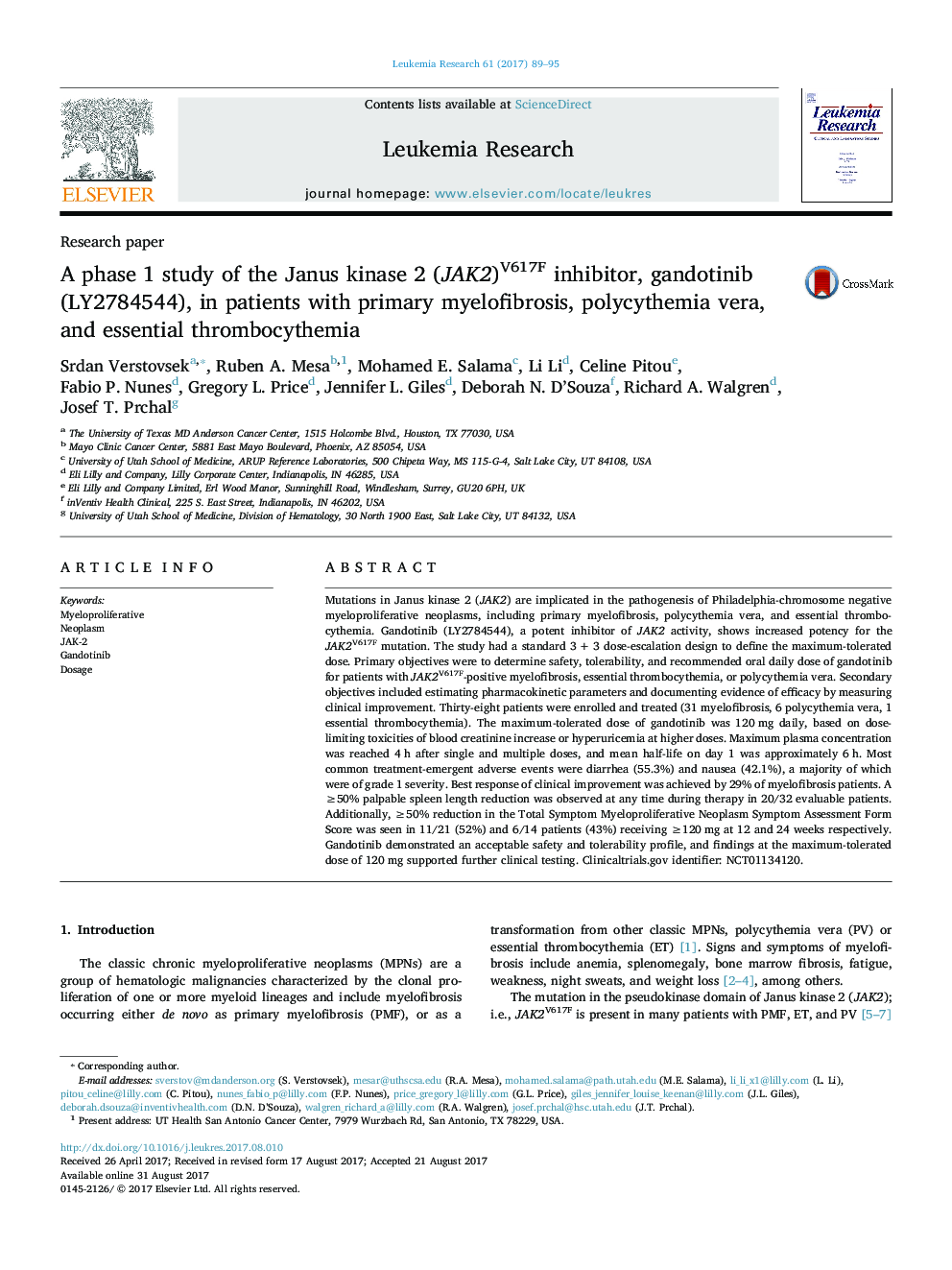| Article ID | Journal | Published Year | Pages | File Type |
|---|---|---|---|---|
| 5527765 | Leukemia Research | 2017 | 7 Pages |
â¢Gandotinib shows increased potency for the JAK2V617F mutation.â¢The recommended phase 2 dose of 120 mg was associated with clinical improvement.â¢Findings at the maximum-tolerated dose of 120 mg supported further clinical testing.â¢Gandotinib demonstrated an acceptable safety and tolerability profile.
Mutations in Janus kinase 2 (JAK2) are implicated in the pathogenesis of Philadelphia-chromosome negative myeloproliferative neoplasms, including primary myelofibrosis, polycythemia vera, and essential thrombocythemia. Gandotinib (LY2784544), a potent inhibitor of JAK2 activity, shows increased potency for the JAK2V617F mutation. The study had a standard 3 + 3 dose-escalation design to define the maximum-tolerated dose. Primary objectives were to determine safety, tolerability, and recommended oral daily dose of gandotinib for patients with JAK2V617F-positive myelofibrosis, essential thrombocythemia, or polycythemia vera. Secondary objectives included estimating pharmacokinetic parameters and documenting evidence of efficacy by measuring clinical improvement. Thirty-eight patients were enrolled and treated (31 myelofibrosis, 6 polycythemia vera, 1 essential thrombocythemia). The maximum-tolerated dose of gandotinib was 120 mg daily, based on dose-limiting toxicities of blood creatinine increase or hyperuricemia at higher doses. Maximum plasma concentration was reached 4 h after single and multiple doses, and mean half-life on day 1 was approximately 6 h. Most common treatment-emergent adverse events were diarrhea (55.3%) and nausea (42.1%), a majority of which were of grade 1 severity. Best response of clinical improvement was achieved by 29% of myelofibrosis patients. A â¥50% palpable spleen length reduction was observed at any time during therapy in 20/32 evaluable patients. Additionally, â¥50% reduction in the Total Symptom Myeloproliferative Neoplasm Symptom Assessment Form Score was seen in 11/21 (52%) and 6/14 patients (43%) receiving â¥120 mg at 12 and 24 weeks respectively. Gandotinib demonstrated an acceptable safety and tolerability profile, and findings at the maximum-tolerated dose of 120 mg supported further clinical testing. Clinicaltrials.gov identifier: NCT01134120.
